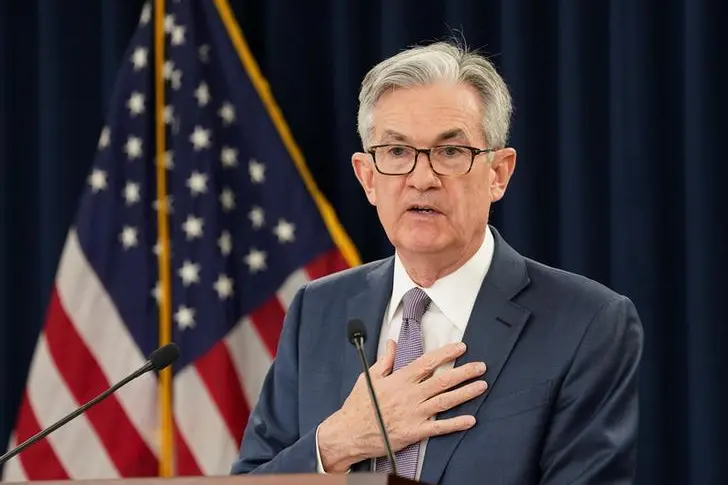PHOTO
(The author is a Reuters Breakingviews columnist. The opinions expressed are his own.)
LONDON - In their rush to repair coronavirus-smashed economies, policymakers are in danger of missing a trick on tackling climate change. The European Central Bank is free to buy the bonds of companies that emit a lot of carbon under President Christine Lagarde’s 1.35 trillion euro Pandemic Emergency Purchase Programme. The same is true of a $750 billion U.S. Federal Reserve purchase programme that Chairman Jerome Powell unveiled in March. They could end up helping some of the worst polluters.
As of June 19, the ECB had bought 219 billion euros of corporate bonds. New research suggests that, in the energy sector, the central bank is perversely likelier to buy a bond the higher its issuer’s greenhouse gas intensity. That is partly because fossil fuel companies tend to be bigger and issue more bonds than smaller renewables-focused ones. A separate InfluenceMap study flags that the Fed could wind up owning $19 billion of bonds issued by fossil fuel-related companies.
Central banks are attuned to climate risk. The Network for Greening the Financial System, a 66-strong group of supervisors, said on Wednesday that an orderly transition to a zero-carbon world would cut just 4% off global GDP by 2100, whereas inaction could burn through 25%. It warns that climate change risk may need to be incorporated into monetary policy operational frameworks.
Even so, central banks worry about picking economic winners and losers, and diverging too far from their narrower mandates. Also, the green bond market is relatively tiny and would be distorted if central banks started focusing their purchases on such securities.
Central bankers can still help. Given the European Union wants to cut carbon emissions by 55% by 2030 and has just passed a taxonomy to categorise what does and doesn’t count as a sustainable asset, the ECB could set an example. It could make disclosures on climate risks a precondition for bonds to be eligible for central bank asset purchases. In time, the EU’s planned 750 billion euro recovery fund – which itself has green conditionality – will involve more issuance. These could be green bonds, which the ECB could buy.
Broadening central banks’ focus to include climate change might worry purists. But so should climate change.
CONTEXT NEWS
- The Network for Greening the Financial System said on June 24 that a business-as-usual approach to climate change could knock 25% off global gross domestic product by the end of the century.
- The NGFS, which consists of 66 central banks and supervisors and 13 observers, assumed a cumulative impact by 2100 of only 4% in an “orderly” transition incorporating increasingly more stringent climate policies, which would enable net zero carbon dioxide emissions by 2070 and give a 67% chance of limiting global warming to below 2 degrees Celsius. A “disorderly” approach, in which no action is taken until 2030, would require a sharper transition and knock 9% off GDP by 2100.
- The U.S. Federal Reserve could end up with $19 billion of corporate bonds issued by fossil fuel-related companies in the energy sector on its balance sheet, research by InfluenceMap estimated on June 23. InfluenceMap said this might include $4 billion of energy sector corporate bonds in the non-investment grade market.
- A paper published by University College Dublin researchers said on June 18 that the European Central Bank’s past and recent purchases stood in stark contrast to the European Commission’s recovery plans as stated in the announcement of the new recovery instrument “Next Generation EU”. That explicitly lists the European Green Deal as a key plank of the recovery, with special emphasis put on renewable energy and clean transport and logistics.
- Controlling for bond size, coupon and revenue, the researchers found evidence that the likelihood of an energy bond being bought by the ECB increased with the greenhouse gas intensity of the company that issued the bond.
(The author is a Reuters Breakingviews columnist. The opinions expressed are his own.)
(Editing by Swaha Pattanaik and Oliver Taslic) ((george.hay@thomsonreuters.com; Reuters Messaging: george.hay.thomsonreuters.com@reuters.net))





















